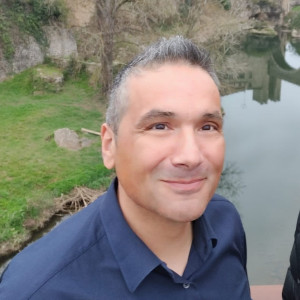Capítulos

Futuro simple y 'be going to' III
Elige la opción correcta.
1 My parents to Miami by plane tomorrow.
My parents are going to Miami by plane tomorrow.
2 I'm sure I a millionaire some day.
I'm sure I will be a millionaire some day.
3 She's good at languages. She Translation next year.
She's good at languages. She's not going to study Translation next year.
4 Lucy to her boyfriend any more. They have broken up.
Lucy won't speak to her boyfriend any more. They have broken up.
5 I've just broken my leg. I my sister tomorrow.
I've just broken my leg. I won't visit my sister tomorrow.
6 Do you think your team the championship this year?
Do you think your team is going to win the championship this year?
7 I you more money. You owe me fifty dollars.
I won't lend you more money. You owe me fifty dollars.
8 Tom computer games in his new department.
Tom will design computer games in his new department.
9 dinner with us tonight?
Aren't you having dinner with us tonight?
10 'I haven't received the hotel confirmation.' 'Don't worry I it right now.'
'I haven't received the hotel confirmation.' 'Don't worry I'll check it right now.'
Resumir con IA:













Hola! si arriba dice ejercicios utilizando futuro continuo porque las respuestas están en futuro simple?
¡Hola Mariana! Gracias por tu comentario. 😊
Arriba dice “ejercicios utilizando futuro continuo”, pero en realidad las instrucciones correctas del ejercicio indican usar “futuro perfecto” o “futuro perfecto continuo”, que son los tiempos verbales adecuados para expresar acciones que estarán terminadas o que habrán estado ocurriendo en un momento específico del futuro.
Por eso, las respuestas no están en futuro simple, sino en:
Futuro perfecto (will have + participio)
Futuro perfecto continuo (will have been + verbo en -ing)
Estos tiempos son los que corresponden a las frases del ejercicio, tal como se muestra en cada solución.
Si necesitas ayuda extra con estos no dudes en contactarnos! 😊 Saludos.
no sirve
Hola Isabella, gracias por tu comentario. Sentimos que no haya funcionado como esperabas. Si nos das más detalles, con gusto lo revisamos y mejoramos. ¡Gracias! Saludos.
ejercicio 1 going to
¡Hola Gabriela! 😊 Gracias por tu mensaje.
Parece que quizás te confundiste de sección, ya que el Ejercicio 1 de esta parte trabaja con futuro perfecto o futuro perfecto continuo, no con going to.
Por ejemplo, en la oración:
By the end of the year, he (become) __________ a doctor,
la forma correcta es: will have become.
Si quieres trabajar con going to, puedo ayudarte a encontrar esa sección también.
Quedo atenta si necesitas algo más.
¡Saludos!
Vaya! También revisa la gramática
Que eficiente!
Hola, buenos días esque creo que tengo un caso muy parecido al de Luis. Quería comentar que al poner we are por ejemplo me pone que es we’re son correctas las dos no?
Hola Gonzalo,
Cuando hablamos en futuro simple y futuro perfecto, utilizamos el sujeto + will have + verbo en participio. Por ejemplo en la 6 sería «The day we finish St. Jame’s way we will have walked 760 kms.» En las respuestas puedes poner o will have walked o bien ‘ll have walked. Ponerlas todas en mayúscula tambien es aceptado. No hay donde uno ponga «we are» en estos ejercicios.
Espero esto te haya ayudado.